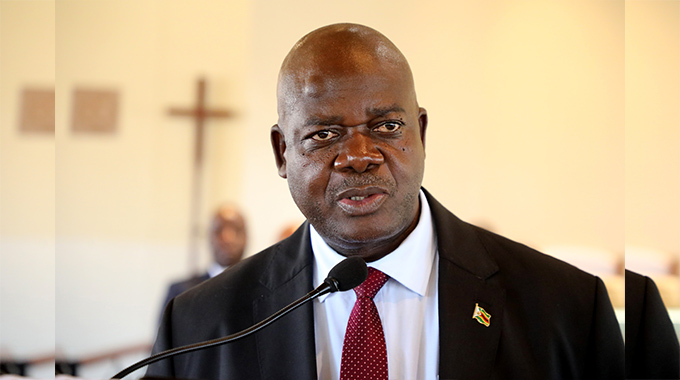High Court rules RTGS legal tender

Fidelis Munyoro, Harare Bureau
The Real Time Gross Settlement (RTGS) is a legal tender in the country, the High Court has ruled in a case in which an investment company lost its claim for provisional sentence against Fly Africa executive chairperson Mr Cassidy Mugwagwa and his company Nu Aero (Private) Limited over US$50 000.
Justice Happias Zhou rejected Temprac Investment claim for provisional sentence against Mr Mugwagwa and his company, and ordered the dispute to “stand over for trial”.
“In the result it is ordered that provisional sentence be and is hereby refused,” said Justice Zhou.
The judge said the Statutory Instrument 133, which introduced the RTGS early this year, was meant to convert into RTGS dollar the US$50 000, which Mr Mugwagwa and his company owed to Temprac with effect from February 22. The new regulations were incorporated within the Finance Act, 2019, in June this year. Temprac’s claim was based on an acknowledgement of debt signed by Mr Mugwagwa on behalf of Nu Aero (Private) Limited.
Mr Mugwagwa failed to honour his obligation to settle its debt with Temprac by November 30 last year, in terms of the agreement.
However, following the promulgation of Statutory 133, which introduced the RTGS on February 22, Mr Mugwagwa tendered payment in RTGS currency citing the legal development that took place after the expiry of the date of payment. Temprac refused to accept payment.
This is despite the fact that the legal instrument prescribed that the balances expressed in the United States dollar immediately before the effective date be deemed to be the opening balances in RTGS dollars at par with the United State dollars.
The issue for determination in the High Court was whether by tendering the payment of RTGS, Mr Mugwagwa and his company had acquitted their obligation in terms of the acknowledgment of debt and the deed of surety.
Justice Zhou ruled that the RTGS dollar was decreed to be a legal tender in the country from the effective date of the regulations.
“The fact that the parties had in their agreement prescribed that the payment be made into the creditors preferred Foreign Currency Account does not alter the effect of the law on all obligations which were expressed in the United States dollar,” he said.
“That portion of the agreement must be read in the light of and compliance with the requirements of the law. “To the extent that the RTGS dollar cannot be paid into an FCA that portion of acknowledgement of debt must be deemed to be of no legal effect.”
The judge also said any contract or term of an agreement should be read subject to the express provisions of a law which affects its performance.
Temprac had approached the High Court seeking a provisional sentence against Mr Mugwagwa and his company, after the businessman refused to settle his debt in foreign currency.








Comments